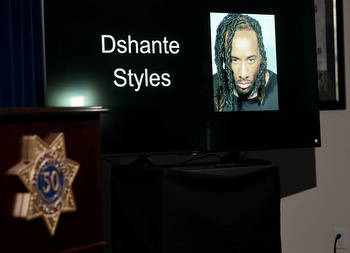Colorado Casino Heist: Sabrina Eddy Acquitted in $500K Theft Case

On March 12th, 2024, around noon, a cashier at Colorado Casino in Cripple Creek was caught stashing half a million dollars before delivering it to a waiting van outside. An hour later, Eddy went to the casino and pulled out four additional $50,000 bundles. This was the single largest theft in Colorado casinos, garnering intense scrutiny from industry operators and the media. Although such heists are practically impossible in online casinos, the incident underscores the importance of stringent security measures for new online casinos to ensure the safety and trust of their patrons.
Despite the mystery and drama surrounding the case, investigations have yielded some results. In the most recent events, Sabrina Eddy, the cashier seen on CCTV stashing bundles of $50,000 in a box, was acquitted when evidence showed she was manipulated into stealing.
Earlier Court Proceedings
When Eddy was arrested, she was charged with theft for her role in conveying the stolen money, conspiracy to commit theft, embezzlement, and abuse of authority at the casino. Two months after her arrest, Judge David Tylor decided to release her on a personal recognizance (PR) bond. The bond was originally set at $10,000, but prosecutors eventually agreed to the PR bond. As directed by the Gilpin County court, the “off the record” meeting with the case’s attorneys persuaded him to establish the PR bail, which meant the accused would not have to pay anything for her release. Her release agreement included a mandatory GPS monitor to trace her movements and a ban from the Colorado Casino premises.
Further Developments
Despite the overwhelming evidence against Sabrina Eddy, she maintained her innocence and believed she was obeying her boss’s directions. She described the events that led up to her conduct, indicating that she initially received a call from the casino’s head of operations. In messages, the operation’s manager and another man, whom she believed to be the casino’s cage manager at the time, claimed that the establishment was experiencing problems with a standing UPS order that required a fixed amount to resolve. They convinced them of the importance of the situation and emphasized that the casino would break a contract if a solution was not found soon. To her understanding, the money she supplied was intended for a lawyer, so when she left the casino, she went to St. Anthony Hospital and handed over the money to a man at around 4:36 a.m. the same day. When she contacted those who had started the procedure later, they had gone offline.
Factors That Led To Eddy’s Acquittal
The prosecution said that Eddy was involved because she was a high-level casino worker who knew the casino protocols and decided to break them. In her defense, she claimed that she did not follow the conventional process since the order to breach policy came from a senior casino officer. In her declaration, she stated, “I did nothing wrong; I was simply following orders I believed had been issued by the casino.”
Eddy’s counsel sought a move to dismiss all charges. According to the district attorney’s office, Colorado’s Gaming Division, in partnership with the Colorado Bureau of Investigations, has been essential in the investigation. This resulted in almost 18,000 pages of accumulated evidence, including surveillance footage, wire transfers, witness accounts, phone and bank data. All evidence pointed to an elaborate scheme coordinated by actors beyond US borders. Sabrina Eddy was a victim of a plot in which the culprits aimed to manipulate a casino cage staff who had access to casino cash. According to the investigators, similar conspiracies were recorded in casinos across America in 2023.
Beyond a reasonable doubt, the defendant was proven innocent because she believed she was operating in the best interests of the casino at the direction of her supervisor. Furthermore, it was established that the defendant had gotten no financial gain from the robbery. The man who received the money from Eddy, Juan Gutierrez-Zambrano, was captured and pleaded guilty to the theft charges. He was sentenced to four and a half years in April.
Implications for the Casino Industry’s Future
Despite the dismissal of charges, Colorado’s largest casino heist has far-reaching consequences for the industry. For starters, many American casinos are examining their internal security systems, with a focus on thorough training for staff members at all levels, improving authentication processes, and increasing surveillance. Additionally, regional and national gambling regulatory organizations are considering boosting the frequency of casino audits as well as tightening security restrictions to prevent foreign companies from infiltrating domestic casinos.
The impact also extends to the online casino sector, where security measures are just as important. New online casinos are now adopting advanced cybersecurity protocols to protect themselves against hacking and fraud. This includes the implementation of multi-factor authentication, end-to-end encryption, and regular security audits to ensure the integrity of their platforms. In addition, there is an increasing emphasis on educating players about safe online gambling practices and identifying potential fraud.
Regulators are also tightening licensing requirements for new online casinos by insisting on stricter background checks on operators and continuous monitoring of their financial transactions. The incident has prompted many online casino platforms to improve their user verification processes and invest in AI-driven fraud detection systems to identify and mitigate suspicious activity in real time.
Conclusion
The Sabrina Eddy case for the Colorado Casino heist has sparked widespread interest, particularly among industry actors. It is a significant learning tool since it reveals crucial issues that require quick adjustment in the gambling industry. As a result, we may see increasing coordination in the sector to protect the American gaming market.




































